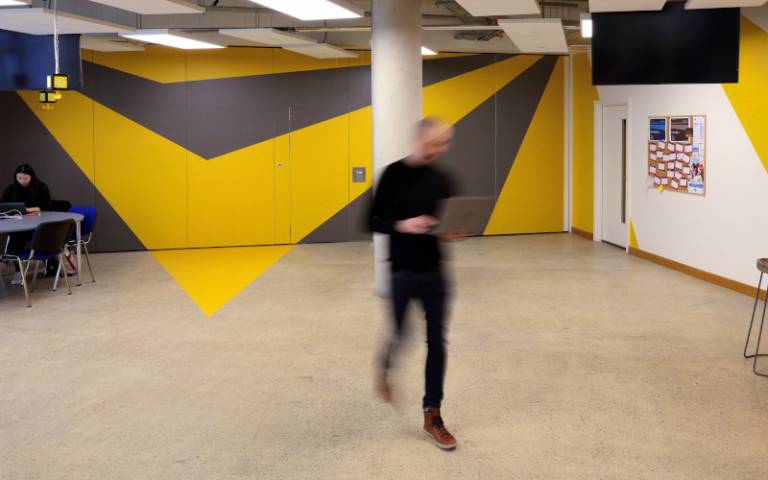UCL tech startups selected for prestigious business accelerator
2 September 2020
Three UCL startups, Humanloop, Hubble and Synth, are currently taking part in the business accelerator programme Y Combinator (YC).

YC focuses on digital companies and has helped launch tech giants including Airbnb, Reddit, Dropbox and Twitch. All three UCL startups are delivering innovative digital solutions.
Using AI to solve business problems
UCL startup Humanloop is making it easier for companies to make use of artificial intelligence (AI) and machine learning to solve business problems. Their approach is unique in that the AI system and a human operator work together collaboratively.
Co-founder and UCL PhD student Raza Habib explains: “In some senses you want AI to be ‘humble’, to be aware of what it doesn’t know, so when it comes up against something it’s not sure about it can refer to a human. Most AI systems can’t do this well, but the ones we’re building can. By querying a human operator it’s able to learn faster but also back off. It never makes any decision in a safety critical or important situation where it’s not confident.”
Humanloop is based on research from UCL’s AI Centre, and was spun-out with assistance from UCL Business (UCLB), the university’s commercialisation company and a part of UCL Innovation & Enterprise.
The team comprises UCL Professors David Barber and Emine Yilmaz with PhD students Raza and Peter Hayes. The team is completed by entrepreneur and scientist Jordan Burgess, who was previously involved with another UCL spinout Bloomsbury AI as well as the Amazon Alexa AI team.
Recently, the company attracted investment from UCL’s Technology Fund (UCLTF), which is managed by AlbionVC in collaboration with UCLB.
Launching entrepreneurial journeys
The two other startups, Hubble and Synth, came out of UCL’s thriving community of student entrepreneurs. Both companies have benefited from support at UCL’s dedicated entrepreneurship hub in King’s Cross. Here, the university’s most promising startups are given free, tailored support and dedicated office space designed to fast-track success to get them ‘investment ready’.
Hubble, co-founded by Hamzah Chaudhary (UCL BA European & Middle Eastern Languages & Linguistics), and Synth, co-founded by Nodar Daneliya (UCL BSc Economics), are both developing innovative data solutions for industry.
Synth is aimed at any organisation or company that deals with large datasets, including those in financial services, accountancy and healthcare. It allows software engineers and developers working in these sectors to design and test new solutions and applications far quicker and without compromising individuals’ privacy and security. It does this by creating a ‘synthetic dataset’, which replicates the overall structure and relationships within the actual data, but without the need to access sensitive information. Synth is now working with a major ‘big four’ accountancy firm on a feasibility study.
“Developing and testing goes on indefinitely in companies on an ongoing basis, and so developers constantly need to be accessing data and developing new features. With our solution they can do that in a way that is quicker, safer and more compliant,” said Nodar.
A supportive community
UCL Innovation & Enterprise’s business advisors often have both technical and business backgrounds themselves. Synth and Hubble were both advised by Doug Stidolph, who spent two years at UCL Innovation & Enterprise before going on to focus on his own startup. Doug’s startup Quell has also been selected on the same cohort of YC. Quell is developing a combat-based fitness game, where a physical resistance glove tracks motions and is linked to an immersive software game experience.
Celia Caulcott, Vice-Provost (Enterprise), said: “There is great opportunity for entrepreneurs to play a crucial role in the economic recovery that will be fundamental for this country as we move forward. Yes, it’s a challenging time for SMEs, but those with a competitive edge, like those chosen through the Y Combinator programme, are on a trajectory to deliver success. UCL’s recognition through this programme displays the diversity of talent coming through our enterprise hub, as we span everything from philosophy to computer science.”
Links
Find out more about:
- entrepreneurship support for UCL students
- the Hatchery, UCL’s incubator programme
- Humanloop
- Synth
- Quell
- Y Combinator
- Y Combinator demo day (Tech Crunch article)
Photo © UCL
 Close
Close

